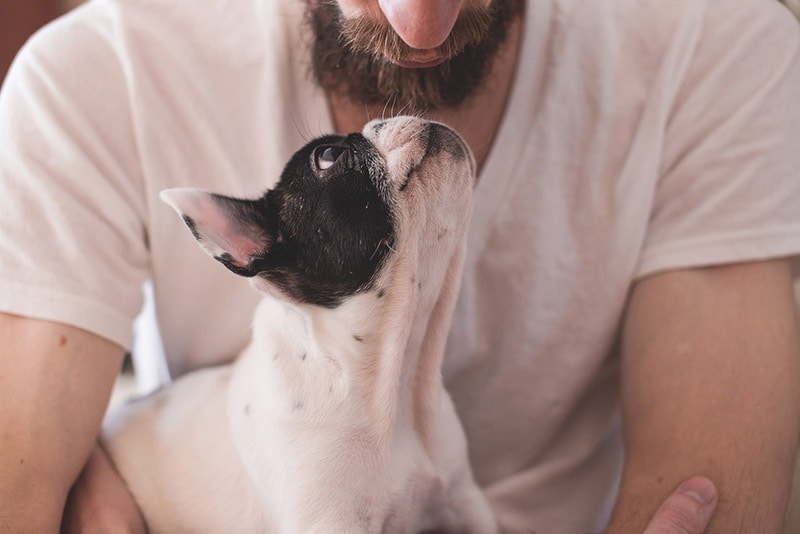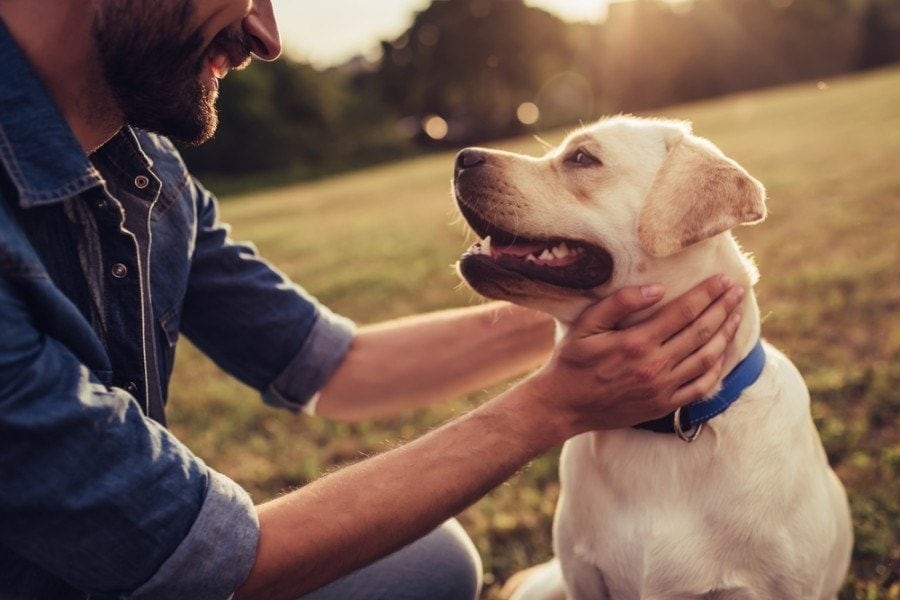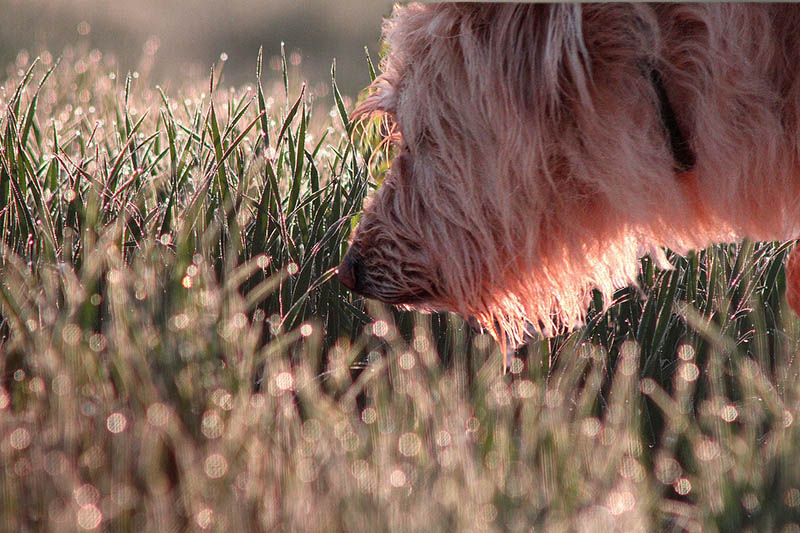My Dog Drank Pool Water! Here’s What to Do (Vet Answer)

Updated on
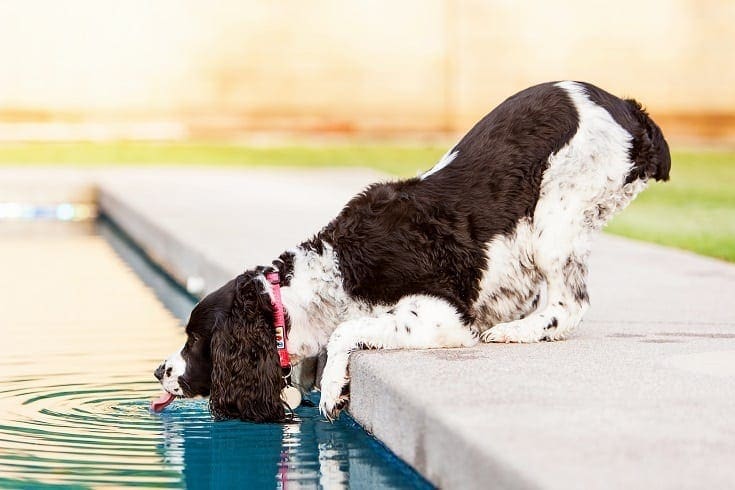
Some dog breeds are born into their love of water, whether you are looking at the Portuguese Water Dog that historically accompanied fishermen in Atlantic waters or the Newfoundland assisting in rescue operations off the coast of Canada. Even among our pet dogs, there are a lot of water-lovers who will happily splash in a river, lake, or – much to our dismay – a muddy puddle. Our backyard-residing friends may satisfy their swimming desires by taking a dip in the pool. If it is an especially hot day, they may even take a few mouthfuls of pool water to go!
A maintained pool will contain cleaning products that ensure that the water stays safe enough for swimming. Should you be concerned that your dog drank pool water after their morning dip?
Can Dogs Drink Pool Water?

Pools are typically kept clean using chlorine or bromine. These will normally be found in a pool at a maximum of 4 parts per million (ppm) or 4 milligrams per liter. It is unlikely that pool water with chlorine or bromine at those concentrations would be enough to kill a dog or cause serious toxicity, as it would be impossible for your dog to ingest more than trace amounts when taking in a few mouthfuls. If your catch your dog drinking pool water, they will probably not experience anything more than a gut upset. In rare cases, this could be accompanied by some vomiting and diarrhea, which shouldn’t last any longer than 48 hours.
Jonathan from PoolCleanerPlanet says that some pools are cleaned with salt chlorinators, which uses salt along with chlorine. In this case, the chlorine will still be around 3 ppm but the salt level can be as high as 3,400 ppm or 3.4 grams per liter. Again, a few mouthfuls shouldn’t harm a healthy dog, but if your dog has a chronic medical condition, you should check with your vet to see if salt ingestion is a concern. It is, of course, important to carefully monitor the chemical balance. You should regularly check that the chemical content doesn’t go too high above the values listed here as this will pose a greater risk.
How Long to Wait After Pool Shock Treatment to Let a Dog in the Pool
One time that you’ll want to be monitoring especially closely is after a pool shock treatment where the chlorine concentration of the pool can be increased by up to 20 times to achieve a thorough disinfection of the water. This level of chlorine can be toxic to both people and dogs, causing nausea and skin rashes. It will take at least 8 hours after the treatment has been completed for the water to be safe for swimming again. In the meantime, you should keep your dog (and any humans) well away from the pool.
What to Do if Your Dog Drinks Chlorine Water
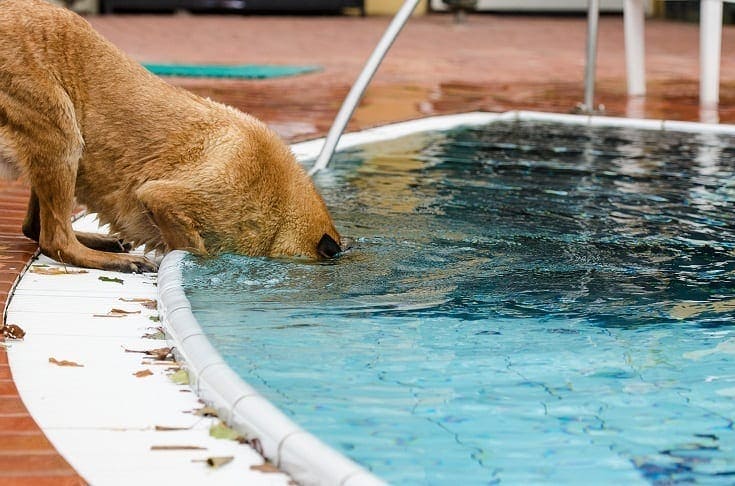
As long as the pool hasn’t recently been shock treated and the pool water values are in the range listed above, your dog will probably be fine. You should watch your dog for signs of stomach upset, including vomiting, diarrhea, and abdominal pain. If these signs become severe, you may need to talk to the vet about symptomatic treatment.
If your dog has a pre-existing medical condition or the pool values are higher than normal due to imbalance or a recent shock treatment, you should call your veterinarian for advice if your dog drinks pool water. They may refer you to poison control, who are the experts when it comes to poisons. It’s a good idea to have an idea of how much your dog drank, how big they are, and all the chemicals that have recently been used in the pool, as well as the levels of those chemicals, if you can get them. Your vet or poison control will then advise you whether you should worry.
Other Frequently Asked Questions About Pool Water and Dogs
With all these chemicals, should I prevent my dog from swimming in the pool?
Even when in contact with your dog’s skin and coat, pool water is generally safe. Still, to avoid any sort of potential sensitivity, it may be a good idea to rinse down your dog after a swim. If you notice that your dog develops an itch after having been in the pool, they should perhaps skip their afternoon dip. Another thing to consider is that our pools aren’t necessarily built with dog swimmers in mind. With a heavy shedder, dog hair can build up quickly in your pool’s filter and pump. Unless you are prepared to clean it out on a frequent basis, it is best to keep the dog out of the pool.
My dog loves swimming and isn’t sensitive to pool water. Should I still limit their swim time? Is too much swimming bad for dogs?
Swimming is a great activity for dogs! It is even included as part of canine hydrotherapy because of its low impact on the joints during exercise. Dogs in the pool should definitely be monitored at all times, but swim time doesn’t have to be limited unless you find that your dog is struggling to swim comfortably. The other thing to watch out for if your dog loves splashing in the water is that they are not drinking too much water during their swim, especially if they’re playing fetch in the water and inadvertently swallow some water with every retrieval. Water intoxication is very rare, but if you notice that your dog has a sudden change in behavior after a swim accompanied by vomiting and salivation, they should be assessed by a veterinarian.
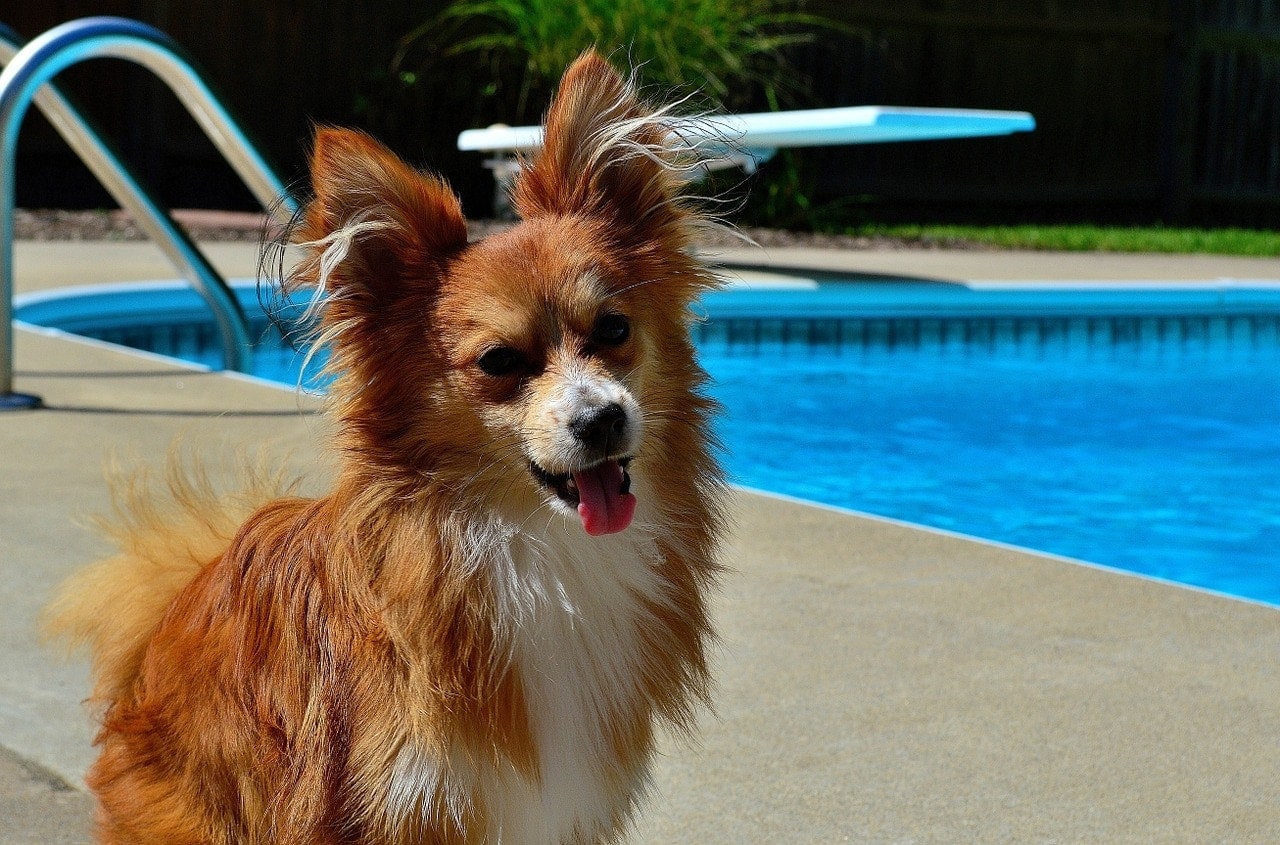
What does it mean if pool water turns green? Can I let my dog swim in green pool water?
Green pool water is most commonly the result of algae growth. This means that the pool’s cleaning chemicals levels have gotten so low that organisms are able to thrive, including potentially harmful bacteria. If your pool water turns green, keep your dog away! It is not safe for swimming and should be thoroughly cleaned before use. This is a situation in which you may want to consider using a pool shock treatment. Your local pool company will be able to help decide how best to clean it.
Final Thoughts: Dog Drinking Pool Water
Your dog drinking pool water is unlikely to land you at the vet’s office for emergency toxicity treatment, but it is still a good idea to carefully consider if your dog should have access to the pool in the first place. Keeping your dog in a fenced-off area is best if you make the decision to keep your dog out of the water. For some dogs the temptation to jump in will just be too great!
It is understandable if you aren’t keen to have your dog drinking pool water or even swimming in the pool. For dogs that are dedicated water-lovers, you can still offer a kiddie pool in the summer, filled with hose water for playing and splashing. This should be filled up with fresh water for every play session and thoroughly rinsed out afterward. Additionally, to help mitigate the temptation for your dog to drink pool water, make sure to offer plenty of fresh water sources and opportunities to drink, especially on hot days or after a long bout of exercise.
By offering safe alternatives, such as plentiful fresh water sources and a kiddie play pool, you might find that even the most diehard water enthusiast can be kept satisfied!
- If you can’t keep your dog out of the pool, try one of our favorite and fill it with fresh water instead: 10 DIY Dog Pools You Can Build at Home Today
Featured Image Credit: Susan Schmitz, Shutterstock




